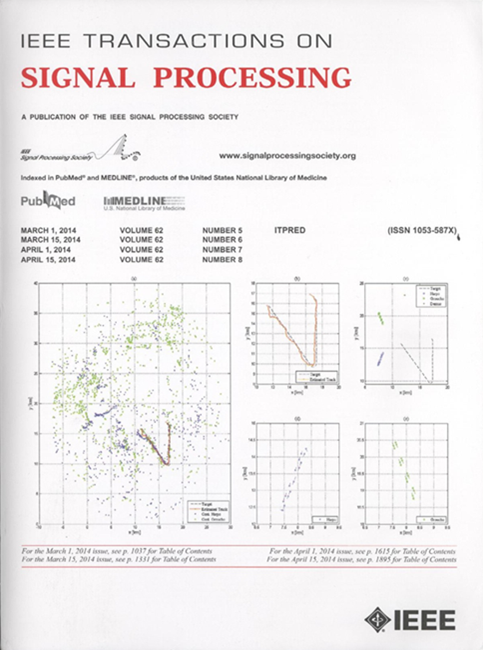离散空间中基于梯度MCMC的近最优MIMO检测
IF 4.6
2区 工程技术
Q1 ENGINEERING, ELECTRICAL & ELECTRONIC
引用次数: 0
摘要
本文章由计算机程序翻译,如有差异,请以英文原文为准。
Near-Optimal MIMO Detection Using Gradient-Based MCMC in Discrete Spaces
The discrete nature of transmitted symbols poses challenges for achieving optimal detection in multiple-input multiple-output (MIMO) systems associated with a large number of antennas. Recently, the combination of two powerful machine learning methods, Markov chain Monte Carlo (MCMC) sampling and gradient descent, has emerged as a highly efficient solution to address this issue. However, existing gradient-based MCMC detectors are heuristically designed and thus are theoretically untenable. To bridge this gap, we introduce a novel sampling algorithm tailored for discrete spaces. This algorithm leverages gradients from the underlying continuous spaces for acceleration while maintaining the validity of probabilistic sampling. We prove the convergence of this method and also analyze its convergence rate using both MCMC theory and empirical diagnostics. On this basis, we develop a MIMO detector that precisely samples from the target discrete distribution and generates posterior Bayesian estimates using these samples, whose performance is thereby theoretically guaranteed. Furthermore, our proposed detector is highly parallelizable and scalable to large MIMO dimensions, positioning it as a compelling candidate for next-generation wireless networks. Simulation results show that our detector achieves near-optimal performance, significantly outperforms state-of-the-art baselines, and showcases resilience to various system setups.
求助全文
通过发布文献求助,成功后即可免费获取论文全文。
去求助
来源期刊

IEEE Transactions on Signal Processing
工程技术-工程:电子与电气
CiteScore
11.20
自引率
9.30%
发文量
310
审稿时长
3.0 months
期刊介绍:
The IEEE Transactions on Signal Processing covers novel theory, algorithms, performance analyses and applications of techniques for the processing, understanding, learning, retrieval, mining, and extraction of information from signals. The term “signal” includes, among others, audio, video, speech, image, communication, geophysical, sonar, radar, medical and musical signals. Examples of topics of interest include, but are not limited to, information processing and the theory and application of filtering, coding, transmitting, estimating, detecting, analyzing, recognizing, synthesizing, recording, and reproducing signals.
 求助内容:
求助内容: 应助结果提醒方式:
应助结果提醒方式:


